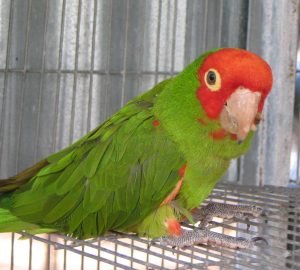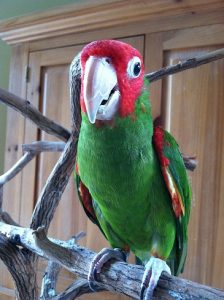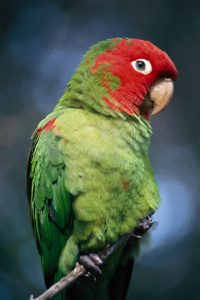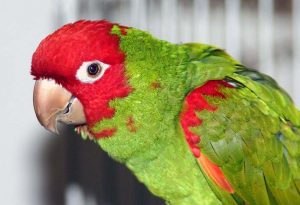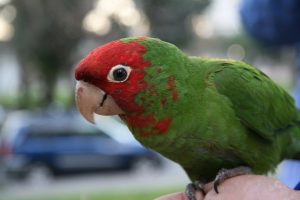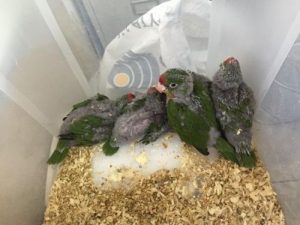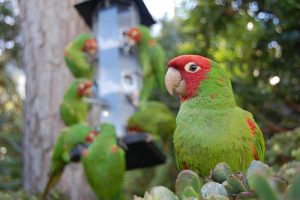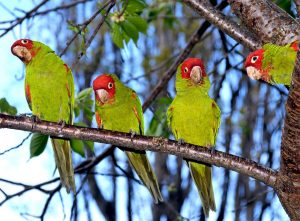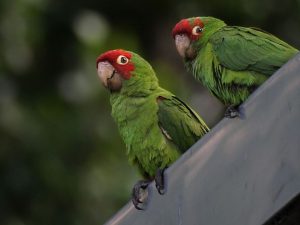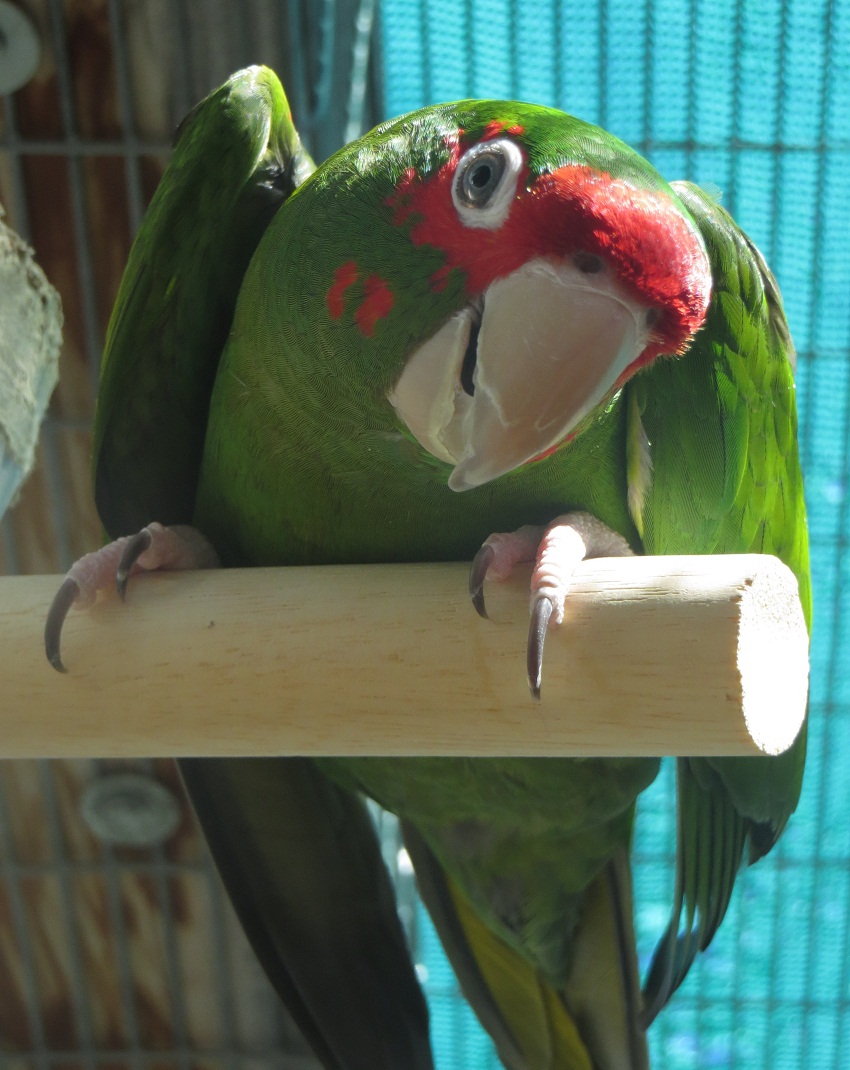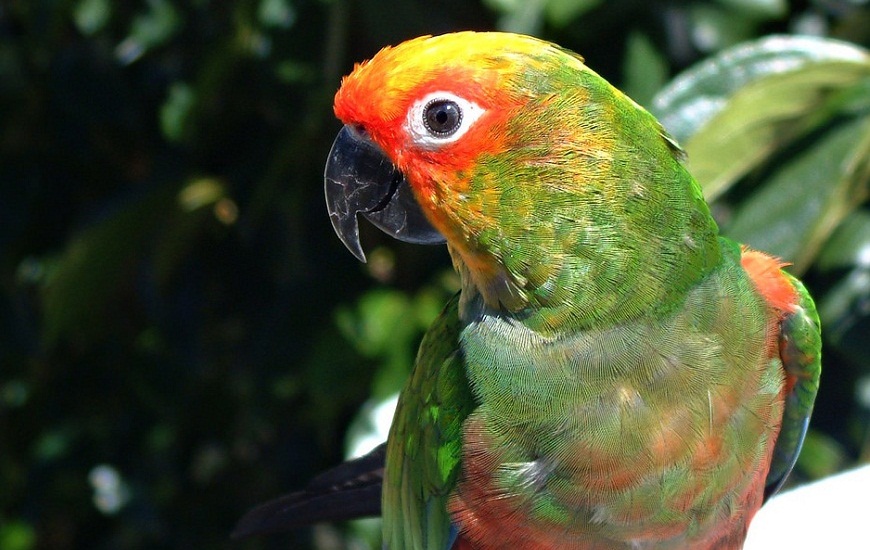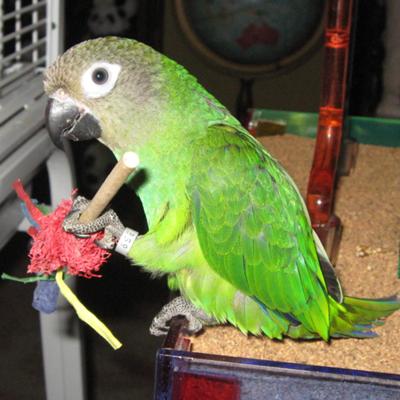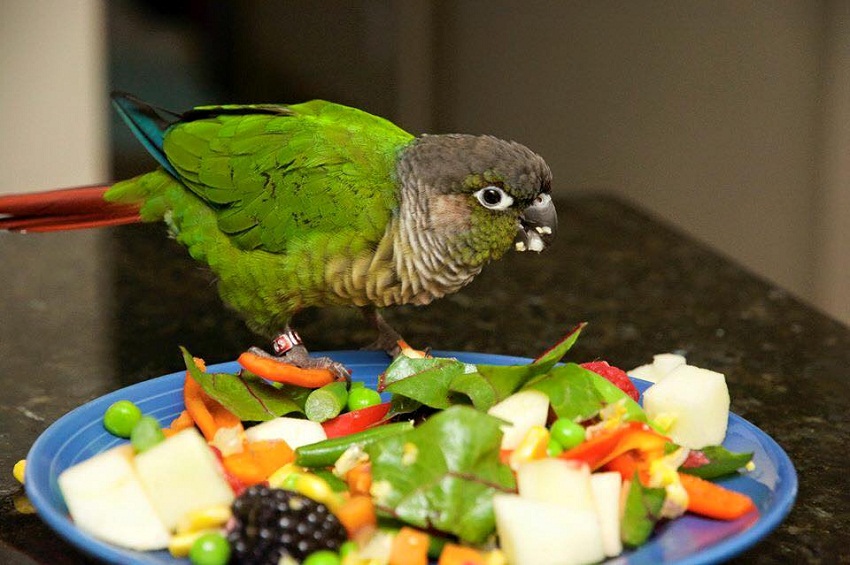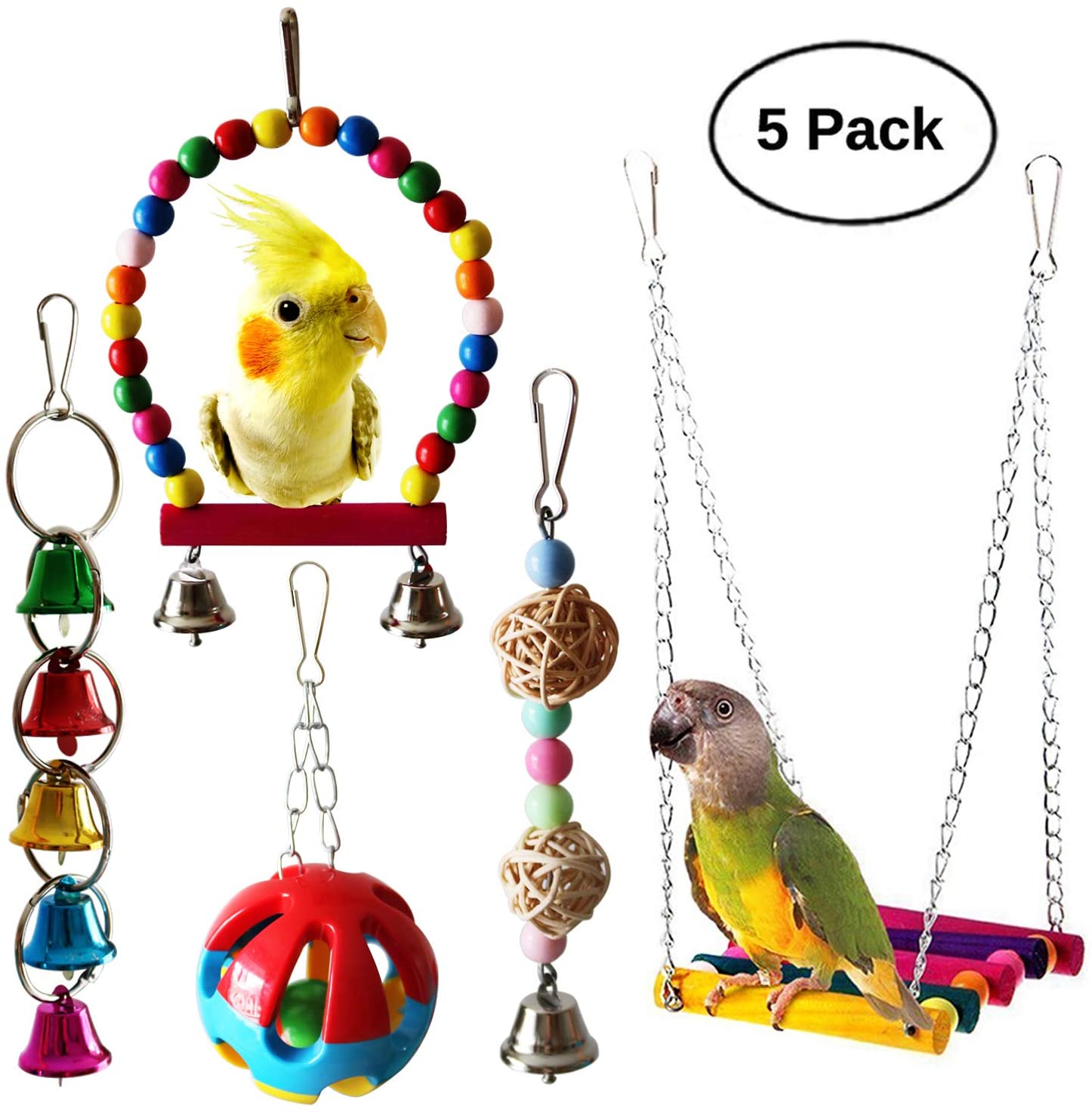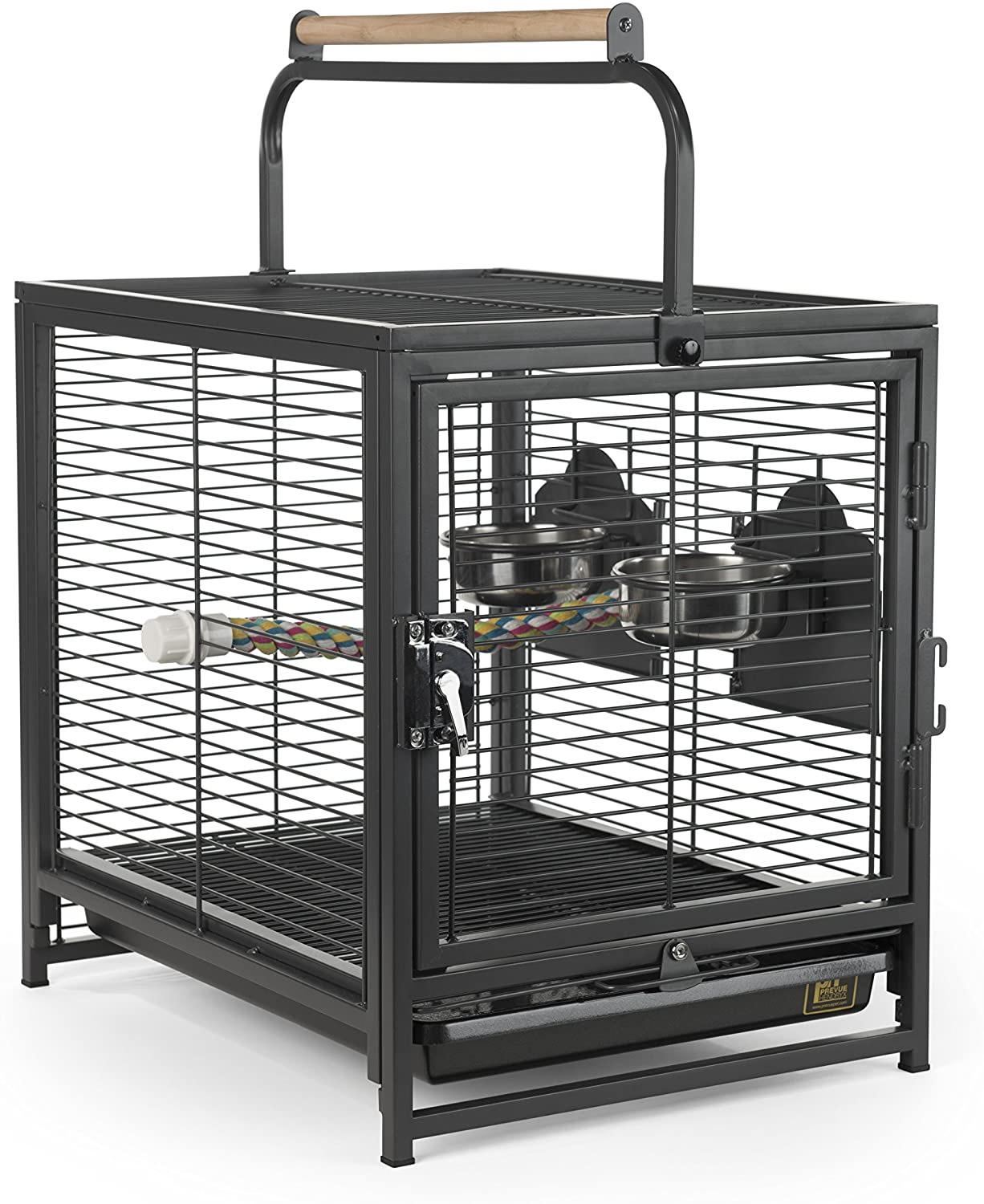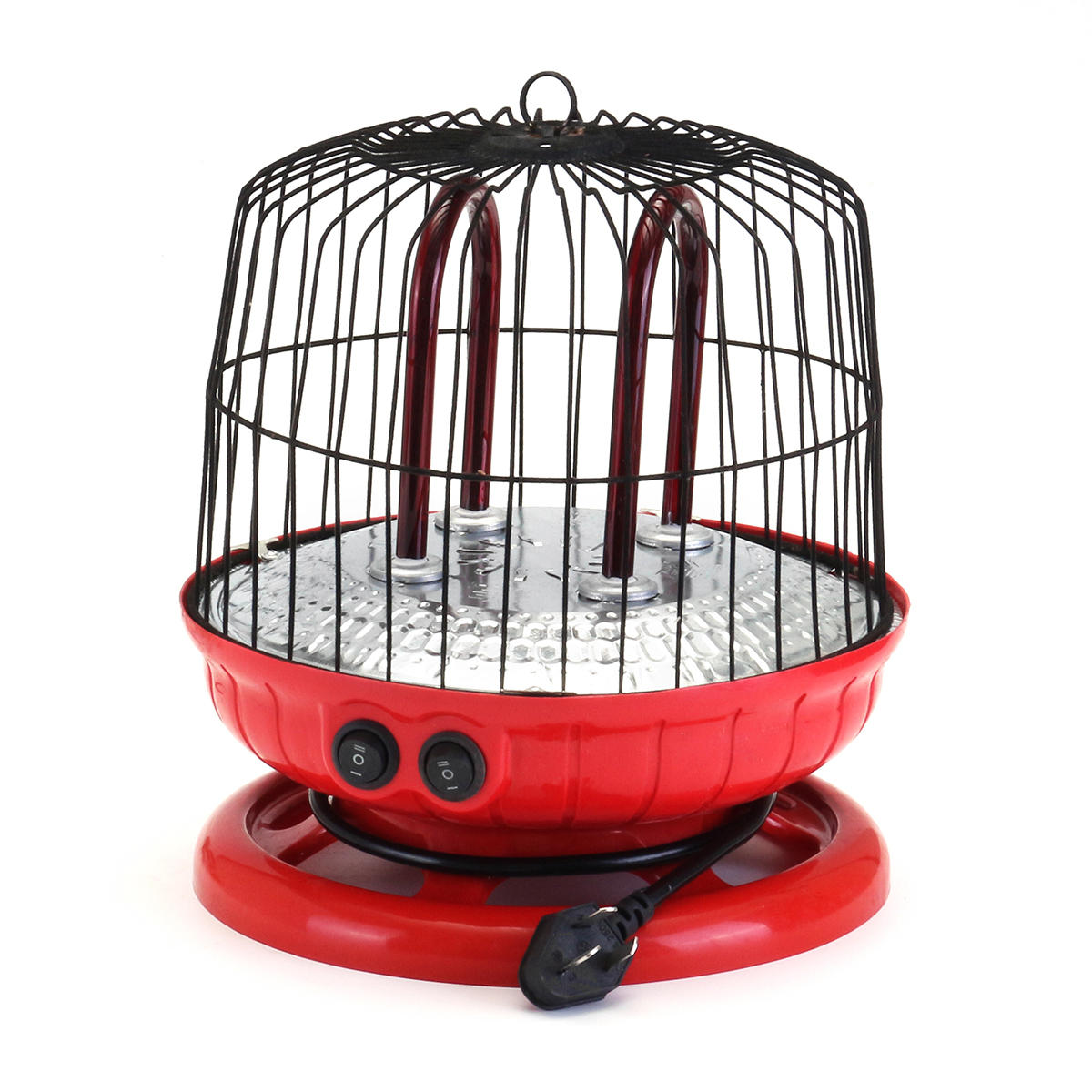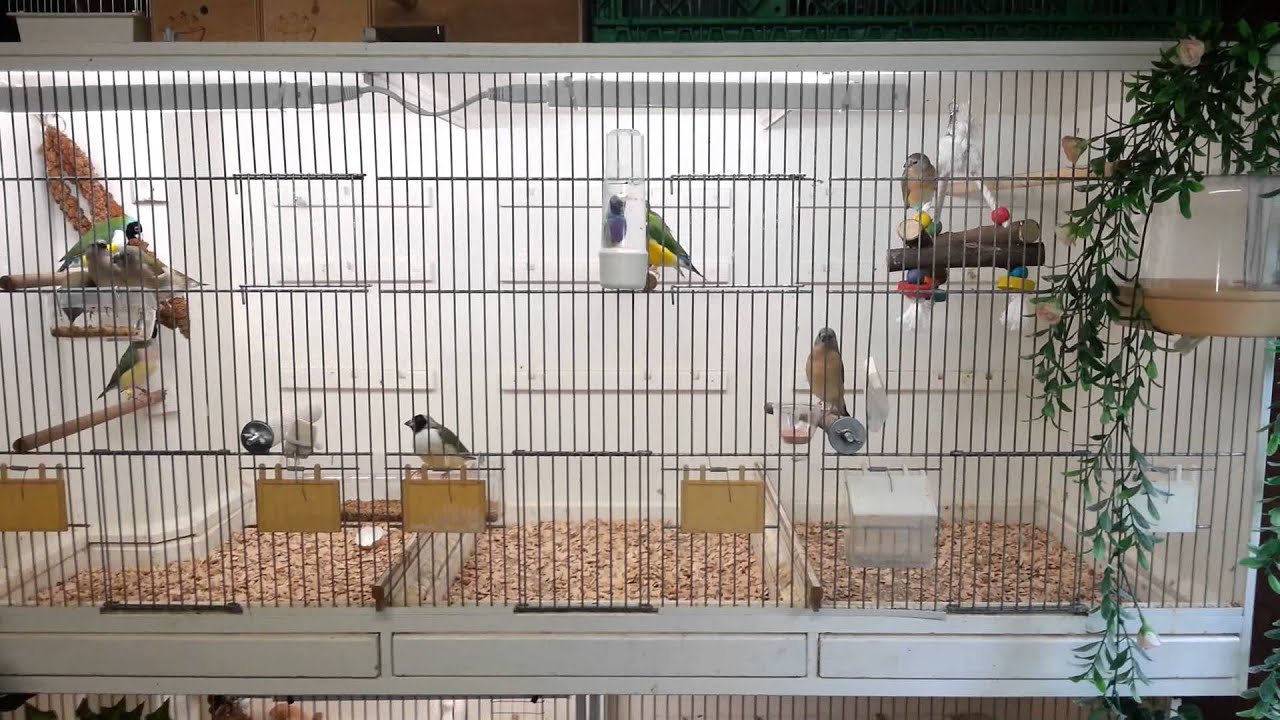Cherry head conures, informally known as the Christmas conures, are great companion birds because of their entertaining and buoyant nature. To enjoy their company at home make sure you have understanding neighbors, as these birds are extremely noisy.
They are endemic to South America with a feral population in countries like Puerto Rico, Spain and U.S. states like California and Florida.
Quick Information |
|
| Other names | Cherry-headed conure, red-headed conure, red-masked parakeet, red-masked conure |
| Color | Green body with prominent red patches on the face and wings, white eye rings, horn shaded bill, gray feet |
| Size | 11-13 in (28-33 cm) |
| Weight | 5.7-6.5 oz (162-184 g) |
| Distribution | North-western Peru and South-western Ecuador |
| Habitat | Broad-leaf and open forests, arid and semi- arid areas; sometimes in suburban or outskirts. |
| Diet | Fruits, vegetables, and seeds |
| Breeding age | 1-3 years |
| Clutch size | 3-4 eggs |
| Incubation period | 23-25 days |
| Fledging | Around 50 days |
| Lifespan | 15-30 years; in some rare cases up to 50 years |
| IUCN conservation status | Near Threatened |
| Temperament as pets | Friendly, attention loving, and playful |
| Maintenance requirements | Needs constant association and communication |
| Noise level | Very loud |
| Talking ability | Good |
As pets
Housing
An ideal cage for cherry head conures must have horizontal bars with minimum 1” gap. These bars will help them climb easily. The dimensions of the cage should be 30X24X30” if not more. Put some rope or wooden or concrete perches inside to keep their nail trimmed and feet strong. Remember, thicker the perches, better the balance for cherry head conures.
Temperature
Average room temperatures are comforting for these birds. If the temperature drops down below 65°F, it will affect your pet’s immune system. Also, make sure to keep it in a draft free area as this is detrimental for your bird.
Behavior and personality
These jaunty birds rather enjoy interacting with their owner than being idle for an extended period. They are extrovert and do not shy away from mingling with new people around them. Their endearing nature is characterized by a clown like personality as they don’t leave a single opportunity to amuse the owner with their tricks and intelligence. Chewing is another favorite activity for which they need chewable wooden toys. However, they become destructive and grouchy when bored.
If you keep a mating pair, give it some alone time during the breeding period, or else the male can turn out to be aggressive.
Feeding
Give commercially available pellet mixes, fresh fruits, and vegetables to your cherry head conure daily. This bird is attracted towards fatty seeds, which you should not provide in large amounts.
Care
Keeping a conure healthy and happy is easy if you make it feel good by letting it stay outside the cage for around 2 hours each day. Provide a safe zone (outside the cage) for your pet where it can stretch its wings, move the way it wants and do some exercises on its own. Let it sleep for around 10-14 hours in a quiet room daily.
As far as bathing is concerned, provide a shallow water dish or mist spray your pet every day. Do not keep it under low temperatures right after the bath.
Also, clean the cage and other paraphernalia with warm soapy water. Dry them well.
Health problems
Usually cherry head conures are extremely sturdy, but if you observe coughing, beak swelling, nasal discharge and loss of appetite in your pet, consult a vet.
Price
These birds are available for adoption within a range of $650 to $950.
Interesting facts
- Their name “red -headed conure” is often referred to the Miltred conure, the Wagner’s conure, and the Finsch’s conure.
- These birds are featured in the famous documentary film, “The Wild Parrots of Telegraph Hill” by director Judy Irving.
Video: Cherry Head Conure Talking
References


